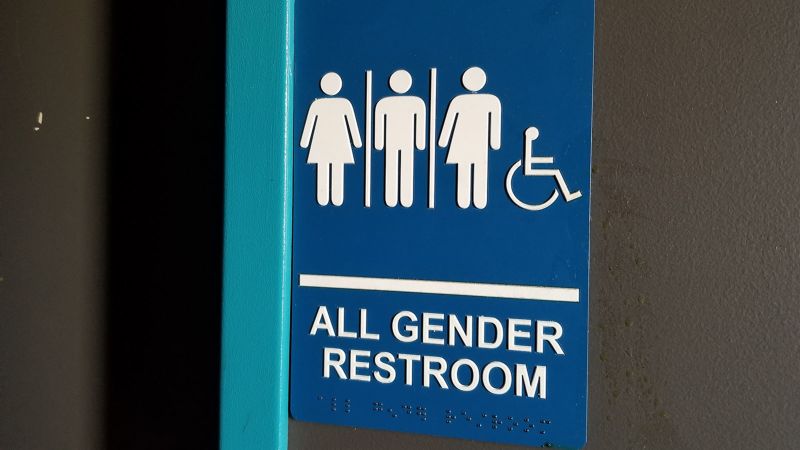California Gov. Gavin Newsom has signed a law requiring K-12 schools to provide gender-neutral bathrooms by July 2026.
The new law, Senate Bill 760, was among a series of laws signed by Newsom Saturday to expand protections for the state’s LGBTQ community.
“California is proud to have some of the most robust laws in the nation when it comes to protecting and supporting our LGBTQ+ community,” Newsom said in a statement.
Under the law, “each school district, county office of education, and charter school” would be required to have at least one gender-neutral bathroom on campus on or before July 1, 2026. The bathroom must be available for use during school hours and during school functions when students are present, the law states.



Disabled toilets are already gender neutral, I guess they’ll just stick another sign on the door?
only if they’re single-occupant bathrooms. which. for schools… are usually not going to be the case. personally, that should be the solution. just rip out both bathrooms, install single occupant cells. nobody cares what you are. the only sign needed is an ‘occupied’/‘vacant’ on the latch.
(edit: well, you’d still have to have a placard with braille on it so blind people can know what kind of room it is.)
Most of the disabled stalls I’ve encountered (at least in the US) are within the gendered bathrooms. So even if the stall is nominally gender neutral one first has to enter the men’s room or women’s room.
Ah, in the UK the disabled ones are separate and you need a key
So much of the online bathroom discussion makes more sense when one realises that US public restroom designs are insane.
https://youtu.be/VKre9_wM3Mo
Yeah here in the good ol (hahahaha) USA most establishments have a separate “restroom” for men and women which consist of a row of sinks for washing up and a number of stalls for toilets (and urinals in men’s rooms of course).
Sometimes the urinals are just in a row on the wall with no dividers between. But there’s usually one or two disabled stalls as well, although they’re not locked in any way.
Do you know you can just buy those keys online?
I didn’t know this for years. So handy.
But be careful as people will ask staff for the key and open it on you haha
Wow I would have thought it would at least have a regular deadbolt from the inside in addition to the external lock.
Also typing this comment makes me realise it’s a little weird to externally lock public toilets in the first place. But I know we can’t have nice things.
I have seen some separate restrooms that are unisex plus handicap accessible. Think they are labeled “Family Restroom.” Haven’t used one though.
Why? It is already so invenient for people without disabilities to somewhere and ask for something, that for disabled it will be nearly-impossible.
Disabled people can buy keys for a couple of quid
Not disable also can. Kinda useless.
It’s not. I have ulcerative colitis and find it very useful.
It turns out, California is not part of the UK and your experience isn’t relevant.
Are you always a dick, or just Tuesdays?